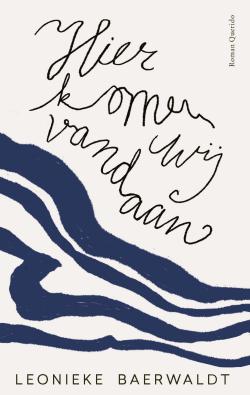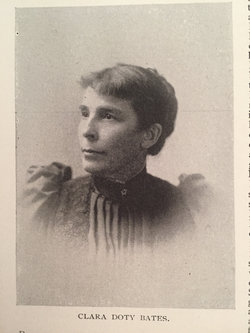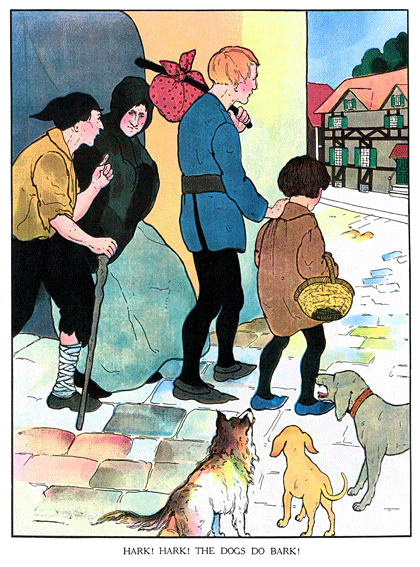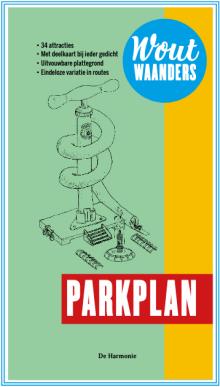Fleurs du Mal Magazine


Or see the index
A Washington Post Style editor’s fascinating and irresistible look back on the Miss America pageant as it approaches its 100th anniversary.
 The sash. The tears. The glittering crown. And of course, that soaring song. For all of its pomp and kitsch, the Miss America pageant is indelibly written into the American story of the past century.
The sash. The tears. The glittering crown. And of course, that soaring song. For all of its pomp and kitsch, the Miss America pageant is indelibly written into the American story of the past century.
From its giddy origins as a summer’s-end tourist draw in Prohibition-era Atlantic City, it blossomed into a televised extravaganza that drew tens of millions of viewers in its heyday and was once considered the highest honor that a young woman could achieve.
For two years, Washington Post reporter and editor Amy Argetsinger visited pageants and interviewed former winners and contestants to unveil the hidden world of this iconic institution.
There She Was spotlights how the pageant survived decades of social and cultural change, collided with a women’s liberation movement that sought to abolish it, and redefined itself alongside evolving ideas about feminism.
For its superstars—Phyllis George, Vanessa Williams, Gretchen Carlson—and for those who never became household names, Miss America was a platform for women to exercise their ambitions and learn brutal lessons about the culture of fame. Spirited and revelatory, There She Was charts the evolution of the American woman, from the Miss America catapulted into advocacy after she was exposed as a survivor of domestic violence to the one who used her crown to launch a congressional campaign; from a 1930s winner who ran away on the night of her crowning to a present-day rock guitarist carving out her place in this world. Argetsinger dissects the scandals and financial turmoil that have repeatedly threatened to kill the pageant—and highlights the unexpected sisterhood of Miss Americas fighting to keep it alive.
Amy Argetsinger is an editor and writer for The Washington Post. “There She Was” is her first book.
There She Was:
The Secret History of Miss America
by Amy Argetsinger
Publisher: Atria/One Signal Publishers
September 7, 2021
Language : English
Hardcover : 384 pages
ISBN-10 : 1982123397
ISBN-13 : 978-1982123390
$ 23.49
• fleursdumal.nl magazine
More in: - Book News, - Book Stories, Archive A-B, AUDIO, CINEMA, RADIO & TV, NONFICTION: ESSAYS & STORIES, PRESS & PUBLISHING

Just A Woman
You ask me why I love her;
Not a charm can you discover!
Would you see
The heart that a shut rose is,
And whose beauty ne’er uncloses
Save for me?
She is not rich or clever,
But her speeches thrill me ever,
And with bliss
My heart her whisper flutters,
Though the wisest word she utters
Is a kiss.
All evil things have shunned her,
And with a wide-eyed wonder
Is she tasked,
What lavish god has given
In her earth so much of heaven
All unasked?
She has no gifts or graces,
But the gladness in her face is
Sought of kings;
She cannot chant a measure,
But her heart with a grave pleasure
Ever sings.
Her gown is of the whitest
But the hem is soiled the slightest:
Little worth,
She has no wings to fly with,
And she prefers to hie with
Me on earth.
There is no hint of heaven
Or glimpse of deep thought even
In her eyes;
She is warm and she is human,
Just a weak and wilful woman —
Not too wise.
Her thousand beauties singing,
I have not said how clinging
Are her arms;
But, not loved and not the lover
Dare you ever hope discover
Half her charms?
Arthur Adams
(1872-1936)
Just A Woman
• fleursdumal.nl magazine
More in: Adams, Arthur, Archive A-B, Archive A-B, THEATRE
Een vader is een man die kinderen verwekt,’ antwoordde je toen ik er eens naar vroeg.
‘Wie heeft mij dan verwekt?’ wilde ik weten. Je pakte me bij mijn kin en keek me indringend aan.
‘We zijn niet op zoek naar een vader,’ zei je. ‘We zijn op zoek naar een prins.’

Hier komen wij vandaan –
Leonieke Baerwaldt
Een moeder en dochter leiden een zwervend bestaan, een fabrieksarbeider droomt erover een tropische-vissenwinkel te beginnen, twee geliefden besluiten samen een huis te bouwen en de kleine zeemeermin wordt geconfronteerd met de harde werkelijkheid.
In dit verhaal over diermensen en mensdieren vinden de sprookjes van Andersen en Grimm hun eigentijdse weerklank. Hier komen wij vandaan is een intens en bijzonder debuut van een verrassende nieuwe stem in de literatuur.
Auteur: Leonieke Baerwaldt
Titel: Hier komen wij vandaan
Vorm Paperback
Uitgever Querido
Druk 1e
Verschenen 24-08-2021
Taal Nederlands
Pagina’s 224 pp.
Genre Literaire fictie
NUR: 301
ISBN 9789021421278
Prijs: € 20,00
• fleursdumal.nl magazine
More in: - Book News, - Book Stories, Archive A-B, Grimm, Andersen e.o.: Fables, Fairy Tales & Stories, Tales of Mystery & Imagination
Kaveh Akbar’s exquisite, highly anticipated follow-up to Calling a Wolf a Wolf.
 With formal virtuosity and ruthless precision, Kaveh Akbar’s second collection takes its readers on a spiritual journey of disavowal, fiercely attendant to the presence of divinity where artifacts of self and belonging have been shed. How does one recover from addiction without destroying the self-as-addict?
With formal virtuosity and ruthless precision, Kaveh Akbar’s second collection takes its readers on a spiritual journey of disavowal, fiercely attendant to the presence of divinity where artifacts of self and belonging have been shed. How does one recover from addiction without destroying the self-as-addict?
And if living justly in a nation that would see them erased is, too, a kind of self-destruction, what does one do with the body’s question, “what now shall I repair?” Here, Akbar responds with prayer as an act of devotion to dissonance―the infinite void of a loved one’s absence, the indulgence of austerity, making a life as a Muslim in an Islamophobic nation―teasing the sacred out of silence and stillness.
Richly crafted and generous, Pilgrim Bell’s linguistic rigor is tuned to the register of this moment and any moment. As the swinging soul crashes into its limits, against the atrocities of the American empire, and through a profoundly human capacity for cruelty and grace, these brilliant poems dare to exist in the empty space where song lives―resonant, revelatory, and holy.
Kaveh Akbar founded and edits Divedapper, where he interviews major voices in contemporary poetry. His poems have appeared in The New Yorker, Poetry, Tin House, APR, PBS NewsHour, and elsewhere. He is the author of the chapbook Portrait of the Alcoholic (Sibling Rivalry Press, January 2017) and full-length collection Calling a Wolf a Wolf (Alice James Books, September 2017). Akbar has received a Pushcart and a Lucille Medwick Memorial Award from the Poetry Society of America. In 2016, Akbar was a recipient of the Ruth Lilly and Dorothy Sargent Rosenberg Poetry Fellowship from the Poetry Foundation. He was born in Tehran, Iran, and is currently a professor in the MFA program at Purdue University and in the low-residency program at Randolph College.
(. . .)
Corporeal friends are
spiritual enemies, said
Blake, probably gardening
in the nude. Today I’m trying
to scowl more, mismatch
my lingerie. Nobody
seems bothered enough.
(. . .)
Pilgrim Bell
Poems
by Kaveh Akbar
Publisher: Graywolf Press
August 3, 2021
Language: English
Paperback
80 pages
ISBN-10 : 1644450593
ISBN-13 : 978-1644450598
$13.70
• fleursdumal.nl magazine
More in: #Editors Choice Archiv, - Book News, - Bookstores, Archive A-B, Archive A-B

Little Red Riding-Hood
If you listen, children, I will tell
The story of little Red Riding-hood:
Such wonderful, wonderful things befell
Her and her grandmother, old and good
(So old she was never very well),
Who lived in a cottage in a wood.
Little Red Riding-hood, every day,
Whatever the weather, shine or storm,
To see her grandmother tripped away,
With a scarlet hood to keep her warm,
And a little mantle, soft and gay,
And a basket of goodies on her arm.
A pat of butter, and cakes of cheese,
Were stored in the napkin, nice and neat;
As she danced along beneath the trees,
As light as a shadow were her feet;
And she hummed such tunes as the bumble-bees
Hum when the clover-tops are sweet.
But an ugly wolf by chance espied
The child, and marked her for his prize.
“What are you carrying there?” he cried;
“Is it some fresh-baked cakes and pies?”
And he walked along close by her side,
And sniffed and rolled his hungry eyes.
“A basket of things for granny, it is,”
She answered brightly, without fear.
“Oh, I know her very well, sweet miss!
Two roads branch towards her cottage here;
You go that way, and I’ll go this.
See which will get there first, my dear!”
He fled to the cottage, swift and sly;
Rapped softly, with a dreadful grin.
“Who’s there?” asked granny. “Only I!”
Piping his voice up high and thin.
“Pull the string, and the latch will fly!”
Old granny said; and he went in.

He glared her over from foot to head;
In a second more the thing was done!
He gobbled her up, and merely said,
“She wasn’t a very tender one!”
And then he jumped into the bed,
And put her sack and night-cap on.
And he heard soft footsteps presently,
And then on the door a timid rap;
He knew Red Riding-hood was shy,
So he answered faintly to the tap:
“Pull the string and the latch will fly!”
She did: and granny, in her night-cap,
Lay covered almost up to her nose.
“Oh, granny dear!” she cried, “are you worse?”
“I’m all of a shiver, even to my toes!
Please won’t you be my little nurse,
And snug up tight here under the clothes?”
Red Riding-hood answered, “Yes,” of course.
Her innocent head on the pillow laid,
She spied great pricked-up, hairy ears,
And a fierce great mouth, wide open spread,
And green eyes, filled with wicked leers;
And all of a sudden she grew afraid;
Yet she softly asked, in spite of her fears:
“Oh, granny! what makes your ears so big?”
“To hear you with! to hear you with!”
“Oh, granny! what make your eyes so big?”
“To see you with! to see you with!”
“Oh, granny! what makes your teeth so big?”
“To eat you with! to eat you with!”
And he sprang to swallow her up alive;
But it chanced a woodman from the wood,
Hearing her shriek, rushed, with his knife,
And drenched the wolf in his own blood.
And in that way he saved the life
Of pretty little Red Riding-hood.

Hark, hark
The dogs do bark
Beggars are coming to town;
Some in jags,
Some in rags,
And some in velvet gowns.
Clara Doty Bates
(1838 – 1895)
Little Red Riding-Hood
Versified by Mrs. Clara Doty Bates
fleursdumal.nl magazine
More in: Archive A-B, Archive A-B, Bates, Clara Doty, Children's Poetry, Grimm, Andersen e.o.: Fables, Fairy Tales & Stories, Tales of Mystery & Imagination

Writing
A man who keeps a diary, pays
Due toll to many tedious days;
But life becomes eventful then
His busy hand forgets the pen.
Most books, indeed, are records less
Of fullness than of emptiness.
William Allingham
(1824 – 1889)
Writing
• fleursdumal.nl magazine
More in: Allingham, William, Archive A-B, Archive A-B

The Fairies
Up the airy mountain,
Down the rushy glen,
We darent go a-hunting
For fear of little men;
Wee folk, good folk,
Trooping all together;
Green jacket, red cap,
And white owls feather!
Down along the rocky shore
Some make their home,
They live on crispy pancakes
Of yellow tide-foam;
Some in the reeds
Of the black mountain lake,
With frogs for their watch-dogs,
All night awake.
William Allingham
(1824 – 1889)
The Fairies
• fleursdumal.nl magazine
More in: Allingham, William, Archive A-B, Archive A-B
A dark, no-holds-barred, and often hilarious collection from a prize-winning poet, veering between the poles of self and world.
 Kim Addonizio’s sharp and irreverent eighth volume, Now We’re Getting Somewhere, is an essential companion to your practice of the Finnish art of kalsarikännit―drinking at home, alone in your underwear, with no intention of going out. Imbued with the poet’s characteristic precision and passion, the collection charts a hazardous course through heartache, climate change, dental work, Outlander, semiotics, and more.
Kim Addonizio’s sharp and irreverent eighth volume, Now We’re Getting Somewhere, is an essential companion to your practice of the Finnish art of kalsarikännit―drinking at home, alone in your underwear, with no intention of going out. Imbued with the poet’s characteristic precision and passion, the collection charts a hazardous course through heartache, climate change, dental work, Outlander, semiotics, and more.
Combatting existential gloom with a wicked, seductive energy, Addonizio investigates desire, loss, and the madness of contemporary life. She calls out to Walt Whitman and John Keats, echoes Dorothy Parker, and finds sisterhood with Virginia Woolf.
Sometimes confessional, sometimes philosophical, these poems weave from desolation to drollery and clamor with raucous imagery: an insect in high heels, a wolf at an uncomfortable party, a glowing and self-serious guitar.
Kim Addonizio is a fiction writer, poet, and teacher. Her poetry collections include Tell Me, a finalist for the National Book Award, What Is This Thing Called Love, and Lucifer at the Starlite. She lives in Oakland, California.
Kim Addonizio
Now We’re Getting Somewhere
Poems
2021
Publisher: W. W. Norton & Company (March 16, 2021)
Language: English
Hardcover: 96 pages
ISBN-10: 0393540898
ISBN-13 : 978-0393540895
New poetry
Kim Addonizio
Now We’re Getting Somewhere
• fleursdumal.nl magazine
More in: #Editors Choice Archiv, #More Poetry Archives, Archive A-B, Archive A-B

Gebruiksaanwijzing
Zegslieden zeggen niets. Ze geven hun meester door.
O, wat zijn ze bang in het donker. Als ze zelf redenen
om te zwijgen moeten verzinnen, met de kreet van de
wraak in de keel. Scherprechters wachten in hun ijle
dromen op bevelen. Ach, die macht over de taal.
Gebruik haar gerust want gemuilkorfd door luwte
blijven toch de lichtgelovigen. Goed onder woorden.
Bert Bevers
Gebruiksaanwijzing
Gedicht
Verschenen in Eigen terrein, Uitgeverij WEL, Bergen op Zoom, 2013
• fleursdumal.nl magazine
More in: Archive A-B, Archive A-B, Bevers, Bert

Blue Beard
Once on a time there was a man so hideous and ugly
That little children shrank and tried to hide when he appeared;
His eyes were fierce and prominent, his long hair stiff like bristles,
His stature was enormous, and he wore a long blue beard–
He took his name from that through all the country round about him,–
And whispered tales of dreadful deeds but helped to make him feared.
Yet he was rich, O! very rich; his home was in a castle,
Whose turrets darkened on the sky, so grand and black and bold
That like a thunder-cloud it looked upon the blue horizon.Blue Beard
He had fertile lands and parks and towns
and hunting-grounds and gold,
And tapestries a queen might covet, statues, pictures, jewels,
While his servants numbered hundreds,
and his wines were rare and old.
Now near to this old Blue-beard’s castle lived a lady neighbor,
Who had two daughters, beautiful as lilies on a stem;
And he asked that one of them be given him in marriage–
He did not care which one it was, but left the choice to them.
But, oh, the terror that they felt, their efforts to evade him,
With careless art, with coquetry, with wile and stratagem!
He saw their high young spirits scorned him, yet he meant to conquer.
He planned a visit for them,–or, ’twas rather one long fête;
And to charming guests and lovely feasts, to music and to dancing,
Swung wide upon its hinges grim the gloomy castle gate.
And, sure enough, before a week was ended, blinded, dazzled,
The youngest maiden whispered “yes,” and yielded to her fate.
And so she wedded Blue-beard–like a wise and wily spider
He had lured into his web the wished-for, silly little fly!
And, before the honeymoon was gone, one day he stood beside her,
And with oily words of sorrow, but with evil in his eye,
Said his business for a month or more would call him to a distance,
And he must leave her–sorry to–but then, she must not cry!
He bade her have her friends, as many as she liked, about her,
And handed her a jingling bunch of something, saying, “These
Will open vaults and cellars and the heavy iron boxes
Where all my gold and jewels are, or any door you please.
Go where you like, do what you will, one single thing excepted!”
And here he look a little key from out the bunch of keys.
“This will unlock the closet at the end of the long passage,
But that you must not enter! I forbid it!”–and he frowned.
So she promised that she would not, and he went upon his journey.
And no sooner was he gone than all her merry friends around
Came to visit her, and made the dim old corridors and chambers
With their silken dresses whisper, with laugh and song resound.
Up and down the oaken stairways flitted dainty-footed ladies,
Lighting up the shadowy twilight with the lustre of their bloom;
Like the varied sunlight streaming through an old cathedral window
Went their brightness glancing through the unaccustomed gloom,
But Blue-beard’s wife was restless, and a strong desire possessed her
Through it all to get a single peep at that forbidden room.
And so one day she slipped away from all her guests, unnoted,
Down through the lower passage, till she reached the fatal door,
Put in the key and turned the lock, and gently pushed it open–
But, oh the horrid sight that met her eyes! Upon the floor
There were blood-stains dark and dreadful,
and like dresses in a wardrobe,
There were women hung up by their hair, and dripping in their gore!
Then, at once, upon her mind the unknown fate that had befallen
The other wives of Blue-beard flashed–’twas now no mystery!
She started back as cold as icicles, as white as ashes,
And upon the clammy floor her trembling fingers dropped the key.
She caught it up, she whirled the bolt to, shut the sight behind her,
And like a startled deer at sound of hunter’s gun, fled she!
She reached her room with gasping breath,–behold, another terror!
Upon the key within her hand; she saw a ghastly stain;
She rubbed it with her handkerchief, she washed in soap and water,
She scoured it with sand and stone, but all was done in vain!
For when one side, by dint of work, grew bright, upon the other
(It was bewitched, you know,) came out that ugly spot again!
And then, unlooked-for, who should come
next morning, bright and early,
But old Blue-beard himself who hadn’t been away a week!
He kissed his wife, and, after a brief pause, said, smiling blandly:
“I’d like my keys, my dear.” He saw a tear upon her cheek,
And guessed the truth. She gave him all
but one. He scowled and grumbled:
“I want the key to the small room!”
Poor thing, she could not speak!
He saw at once the stain it bore while she turned pale and paler,
“You’ve been where I forbade you! Now you shall go there to stay!
Prepare yourself to die at once!” he cried. The frightened lady
Could only fall before him pleading: “Give me time to pray!”
Just fifteen minutes by the clock he granted. To her chamber
She fled, but stopped to call her sister Anne by the way.

“O, sister Anne, go to the tower and watch!” she cried, “Our brothers
Were coming here to-day, and I have got to die!
Oh, fly, and if you see them, wave a signal! Hasten! hasten!”
And Anne went flying like a bird up to the tower high.
“Oh, Anne, sister Anne, do you see anybody coming?”
Called the praying lady up the tower-stairs with piteous cry.
“Oh Anne, sister Anne, do you see anybody coming?”
“I see the burning sun,” she answered, “and the waving grass!”
Meanwhile old Blue-beard down below was whetting up his cutlass,
And shouting: “Come down quick, or I’ll come after you, my lass!”
“One little minute more to pray, one minute more!” she pleaded–
To hope how slow the minutes are, to dread how swift they pass!
“Oh Anne, sister Anne, do you see anybody coming?”
She answered: “Yes I see a cloud of dust that moves this way.”
“Is it our brothers, Anne?” implored the lady. “No, my sister,
It is a flock of sheep.” Here Blue-beard thundered out: “I say,
Come down or I’ll come after you!” Again the only answer:
“Oh, just one little minute more,–one minute more to pray!”
“Oh, Anne, sister Anne, do you see anybody coming?”
“I see two horsemen riding, but they yet are very far!”
She waved them with her handkerchief; it bade them, “hasten, hasten!”
Then Blue-beard stamped his foot so hard
it made the whole house jar;
And, rushing up to where his wife knelt, swung his glittering cutlass,
As Indians do a tomahawk, and shrieked: “How slow you are!”
Just then, without, was heard the beat of hoofs upon the pavement,
The doors flew back, the marble floors rang to a hurried tread.
Two horsemen, with their swords in hand,
came storming up the stairway,
And with one swoop of their good swords
they cut off Blue-beard’s head!
Down fell his cruel arm, the heavy cutlass falling with it,
And, instead of its old, ugly blue, his beard was bloody red!
Of course, the tyrant dead, his wife had all his vast possessions;
She gave her sister Anne a dower to marry where she would;
The brothers were rewarded with commissions in the army;
And as for Blue-beard’s wife, she did exactly as she should,–
She wore no weeds, she shed no tears; but very shortly after
Married a man as fair to look at as his heart was good.
Clara Doty Bates
(1838 – 1895)
Blue Beard
fleursdumal.nl magazine
More in: Archive A-B, Archive A-B, Bates, Clara Doty, Children's Poetry, Grimm, Andersen e.o.: Fables, Fairy Tales & Stories



Ook als niemand
Geen blijf weten zij met zichzelf, maar zeker
kennen ze murw als getuigen hun plaats.
De hemelstreken zijn hun wanden want geen
vensters zijn er om uitzicht te kaderen. Het
zuiden is hun raam. Ook als niemand hem
uitspreekt dragen zij volhardend hun naam.
Bert Bevers
Ook als niemand
Gedicht
Geschreven bij potloodportretten van daklozen
door Kees Franken uit Bergen op Zoom
• fleursdumal.nl magazine
More in: Archive A-B, Archive A-B, Bevers, Bert
Poetry International heeft 11 juni tijdens het Poetry International Festival de C. Buddingh’-prijs 2021 toegekend aan de Nederlandse dichter Wout Waanders, voor zijn poëziedebuut Parkplan, een uitgave van De Harmonie. In toegankelijke verzen komt het leven van alledag aan bod: soms grappig, dan weer keihard.
 Per gedicht weet je niet wat je kan verwachten: of het start absurd, en dan gaat het over iets wezenlijks zoals ziek zijn en verdwijnen, of het begint heel serieus over hoe een relatie in de slop zit en wordt uiteindelijk weer licht.
Per gedicht weet je niet wat je kan verwachten: of het start absurd, en dan gaat het over iets wezenlijks zoals ziek zijn en verdwijnen, of het begint heel serieus over hoe een relatie in de slop zit en wordt uiteindelijk weer licht.
Dit jaar vond de ontknoping van de C. Buddingh’-prijs zowel in de zaal in LantarenVenster in Rotterdam als online plaats.
Ook de dichters Schiavone, René Smeets en Dorien de Wit maakten met hun debuut kans op de prijs.
De jury bestond uit Ellen Deckwitz (voorzitter), Mylo Freeman en Ilke Froyen.
De jury: “Parkplan is een zeer consistente bundel die handelt over de worsteling die het bestaan is, en hoe we daar met onze dagelijkse kleine onderhandelingen toch een kloppend geheel van proberen te maken.” Wout Waanders draait de realiteit een kwartslag, maar net genoeg om er helemaal in mee te gaan. Je stapt naar binnen en alles lijkt volkomen vanzelfsprekend:
Op een onbewaakt ogenblik
was er een meisje in mijn
rabarberlimonade gesprongen.
34e C. Buddingh’-prijs 2021
Voor de 34ste editie van de C. Buddingh’-prijs werden 25 poëziedebuten ingezonden. De jury prees het gemiddeld hoge niveau van de poëzie-eerstelingen. “Er werd intelligent geënjambeerd, de slimme intertekstualiteiten vlogen je om de ogen en aan ieder detail, van titel tot vormgeving, van pagina-opmaak tot kleurstelling, was aandacht besteed”, aldus de jury. “Er was een aantal waaruit niet alleen technisch, maar ook empathisch vernuft sprak. De bereidwilligheid om alleen te willen plezieren, maar ook om een statement in te nemen van wat poëzie vermag. Deze overtuigden door de eigen stem, doordat ze het risico durfden te nemen de lezer voor het hoofd te stoten, buiten de gebaande paden van de dichtkunst te willen gaan.”
Met de jaarlijkse uitreiking van de C. Buddingh’-prijs beoogt Poetry International sinds 1988 meer aandacht te genereren voor de meest talentvolle nieuwe stemmen in de Nederlandstalige poëzie. Voor menig dichter van naam was de C. Buddingh’-prijs de eerste belangrijke trofee die in de wacht werd gesleept. Joke van Leeuwen, Ilja Leonard Pfeijffer en Anna Enquist, of recenter Lieke Marsman, Ellen Deckwitz, Marieke Lucas Rijneveld en Radna Fabias en Roberta Petzoldt wonnen de prijs. In 2020 ging de prijs naar de Vlaamse dichter Jens Meijen.
• Wout Waanders wint 34e C. Buddingh’-prijs 2021
• Parkplan beste poëziedebuut van het jaar
• 25 ingezonden debuutbundels
• fleursdumal.nl magazine
More in: #Modern Poetry Archive, - Book News, Archive A-B, Archive W-X, Awards & Prizes, Buddingh', Cees, Conceptual writing, Marsman, Lieke, Poetry International, Rijneveld, Marieke Lucas
Thank you for reading Fleurs du Mal - magazine for art & literature